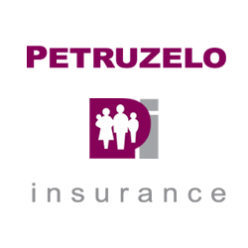
Thinking of becoming a landlord? It’s a good financial move, as rental properties provide steady income. If you bought a home during an economic downturn or inherited property, today’s high rental prices are a boon to your personal income. But before you officially become a landlord, it’s helpful to understand the responsibilities that will be expected of you.
If you don’t live in a home full-time, you may be unaware of small maintenance projects that should be done early, but because tenants don’t mention these small problems, you don’t know about them until they become large problems. These include:
Smoke alarms. Most smoke alarms and CO2 detectors will give off warning “beeps” when the batteries need replacing. But if you’re not there to hear them, you may be unaware that it’s time to add fresh batteries. Ask that tenants let you know when the beeping starts so you can replace batteries. Stress the importance of not simply disconnecting the alarm because of the annoying noise. Consider installing “smart” alarms that will send you a message when the batteries are getting low.
Water damage. Water leaks are one of the most common problems in a rental property. It could be due to a structural failure such as roof damage or failed weather stripping or broken pipes. It could also happen as the result of tenant negligence: overflowing bathtubs or forgotten taps. Check the home regularly for evidence of roof damage that might need to water leaks, and ensure any damaged pipes are replaced. You may also wish to consider installing water sensors that help you detect small leaks before they become big problems.
HVAC. Heating, ventilation, and air conditioning malfunction is one of the most common complaints made by tenants to landlords. To prevent problems, ensure that the home’s HVAC system is serviced and cleaned regularly so you’re not leaving your tenants in the cold, or the excessive heat.
Clogged toilets. While most of us know by now that things like baby wipes or diapers shouldn’t be flushed, some of us didn’t get the message. Clogged toilets are a regular source of headaches for landlords. Ensure that when tenants sign the lease, they’re aware of how to keep the toilets free of materials that shouldn’t be there. Take particular care to do this if the home has only one toilet or uses sensitive “country plumbing” and a septic tank. If the home uses a septic tank, be sure to get it pumped regularly.
Electrics. The Electrical Safety Foundation International (ESFI) has estimated that home electrical faults account for as many as 51,000 fires each year, 500 deaths, and $1.3 billion in damage. To be sure you’re keeping your tenants safe, ensure all work is done by a licensed electrician (instead of DIY jobs), and that safety equipment such as ground fault current interrupter (GFCI) outlets and tamper-resistant (TR) receptacles are installed.
Insurance. Be certain you have the right type of policy for landlords, and help your tenants understand why they should carry a renter’s policy to protect their own belongings. In Connecticut, Petruzelo Insurance offers personal and business policies, including landlord and renter’s insurance, that fit your needs. Call us at 866-479-3327 or visit our website for more information.
